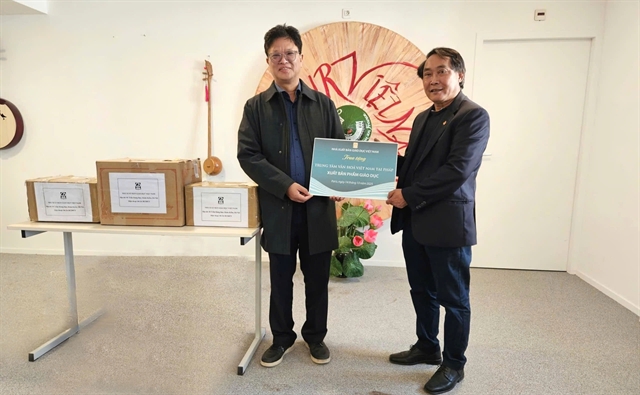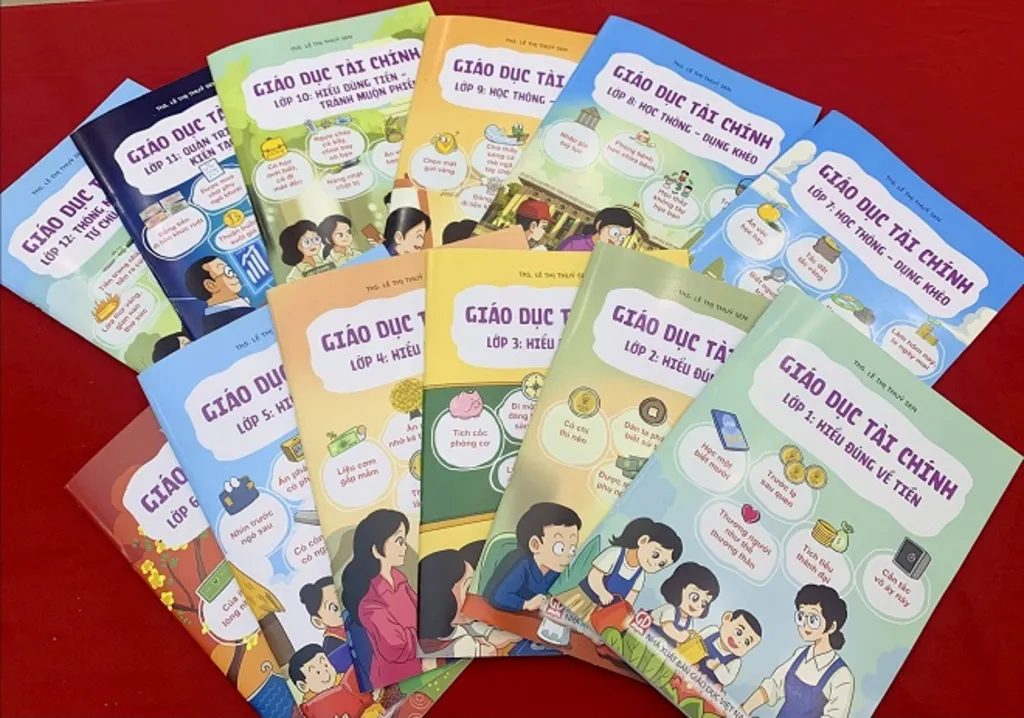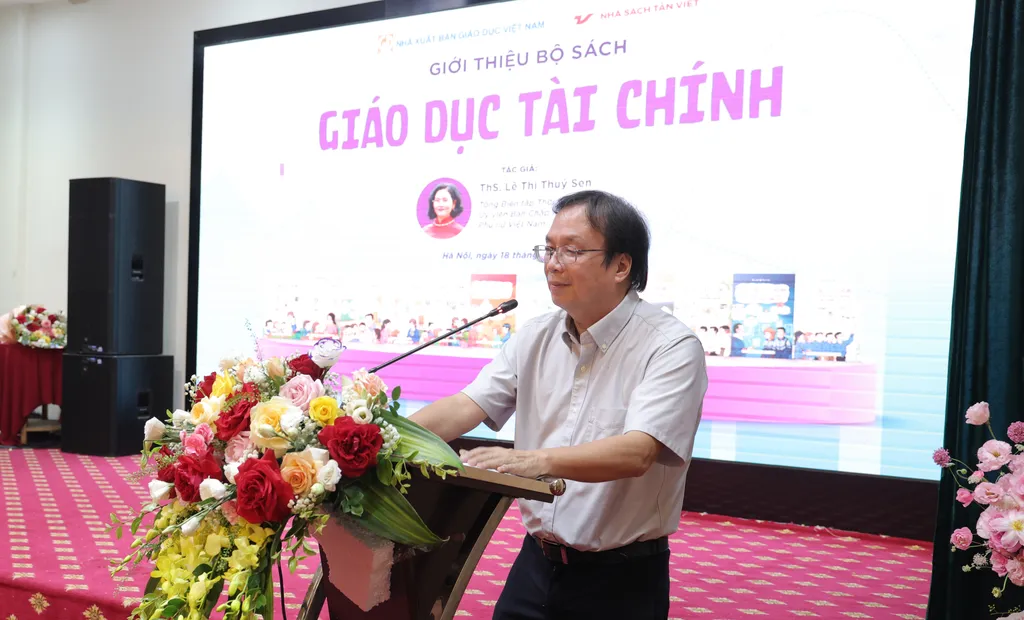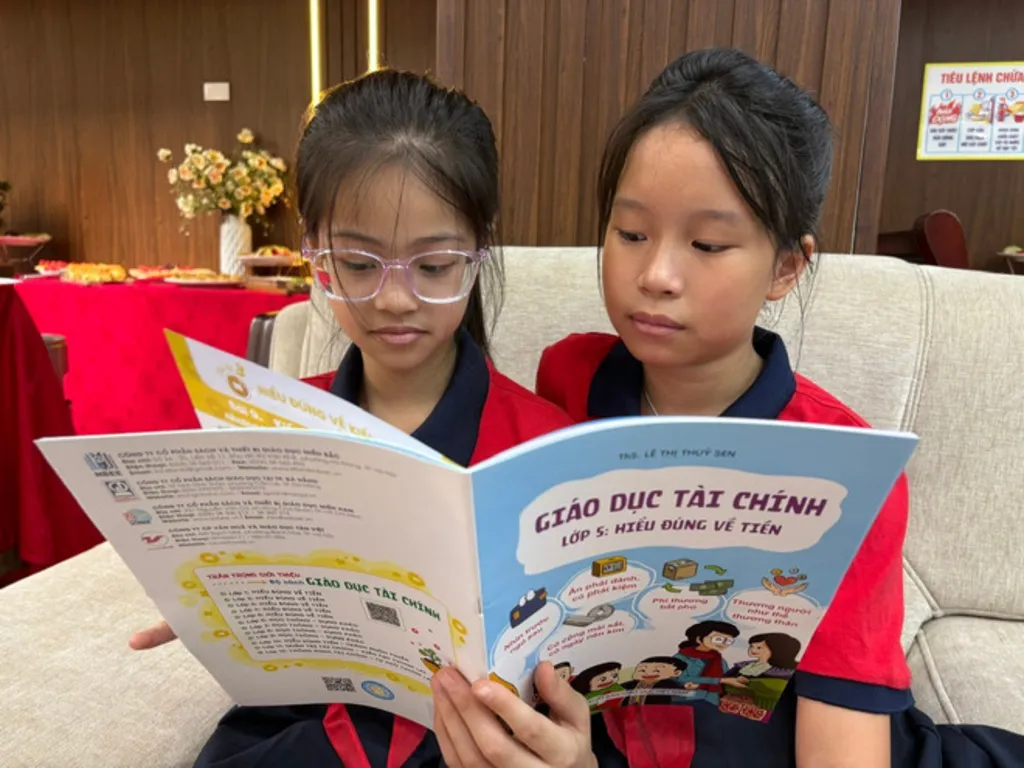 Society
Society

 |
| The new textbook series titled Financial Education for students was launched by the Vietnam Education Publishing House (VEPH) in mid-August |
HÀ NỘI - In mid-August, the Vietnam Education Publishing House (VEPH) launched a new textbook series titled “Financial Education” for students from Grade 1 to Grade 12. This initiative represents a significant step towards equipping young learners with essential financial literacy, empowering the “future owners of the nation” to develop smart spending habits and effective personal financial management skills.
Financial education – An important foundation for sustainable society
Financial education plays a crucial role in helping students build sound money management habits, make informed spending decisions, and prepare for independent living in the future. In today’s increasingly complex economy, where cashless transactions are becoming the norm, understanding the value of money, how to save, invest, and manage financial risks is essential from an early age.
In many developed countries such as the United States, the United Kingdom, Japan, and Singapore, financial education has long been part of the official school curriculum at both primary and secondary levels. Students learn to budget, use credit cards responsibly, and understand concepts such as taxes and interest rates. In these countries, young people tend to have lower debt levels and greater financial independence.
 |
| Nguyễn Tiến Thanh, Chairman of the Members' Council and General Director of VEPH, spoke at the launch of the “Financial Education” textbook series |
Speaking at the launch of the “Financial Education” textbook series, Nguyễn Tiến Thanh, Chairman of the Members’ Council and General Director of VEPH, noted that most G20 nations and members of the Organisation for Economic Co-operation and Development (OECD) have already developed and implemented national strategies for financial education.
In contrast, in many developing countries, including Việt Nam, this subject remains relatively new and has yet to receive sufficient attention. Therefore, introducing financial education into schools is essential to equip younger generations with practical life skills and contribute to building a sustainable and prosperous society.
Instilling smart spending habits in Vietnamese students
Recognising the urgent need to equip students with financial knowledge and skills, VEPH assembled a team of experienced experts in financial education and banking to develop the “Financial Education” textbook series, with the aim of integrating the materials into school curricula and promoting financial literacy more widely across society.
 |
| This textbook series will help students develop healthy financial habits, cultivate smart consumer behavior, and appreciate the value of labor |
The series is authored and led by MSc. Lê Thị Thúy Sen, Editor-in-Chief of Thời báo Ngân hàng (Banking Times), together with a team of co-authors and advisors who are leading specialists in finance, banking, economics, and law. Designed in accordance with Việt Nam’s 2018 General Education Curriculum and aligned with both national and international financial standards, the books adopt an interdisciplinary approach suited to each educational level.
Comprising 12 volumes structured across three educational stages—from primary to high school—the textbooks ensure pedagogical coherence and accessibility under the principles of “easy to remember – easy to understand – easy to apply – engaging to learn”. Each grade’s content is organised into themed units, with approximately 35 lessons per year (equivalent to one lesson per week), making them convenient for classroom implementation.
At the primary level (Grades 1–5), under the theme “Understanding Money Properly”, students are introduced to the value of money, rational spending, saving, the importance of labour, and sharing with others.
At the lower secondary level (Grades 6–9), with the theme “Financial Thinking – Learn Smart, Spend Wisely”, students gain basic knowledge about customs and practices related to money, digital currencies, careers and income in the digital era, and key concepts of saving, spending, payment, and investment.
At the upper secondary level (Grades 10–12), under the theme “Financial Intelligence – Self-Reliance for the Future”, students explore broader economic concepts such as exchange rates, credit, interest rates, and investment environments. They also learn about various financial products such as bonds, stocks, insurance, mutual funds, certificates of deposit, taxes, gold, and entrepreneurship, as well as the financial and banking systems, international financial markets, and personal financial management.
According to Lê Thị Thúy Sen, financial education is not merely about imparting technical knowledge of money, saving, or investing; it is also a process of nurturing humanistic values and fostering positive attitudes and behaviours towards finance. Through this textbook series, she aims to help students gradually develop healthy financial habits, cultivate smart consumer behaviour, and appreciate the value of labour—thereby promoting holistic personal growth and preparing them to become responsible, financially literate citizens in a modern economy and future society.
The author employs an engaging and culturally rich approach, drawing inspiration from Vietnamese proverbs, folktales, short stories, traditional sayings, and familiar cultural symbols to make financial concepts relatable and accessible. The content integrates financial and banking knowledge with moral education, life skills, and civic education—making financial literacy not merely a subject to study, but a meaningful lesson for life.-VNS




